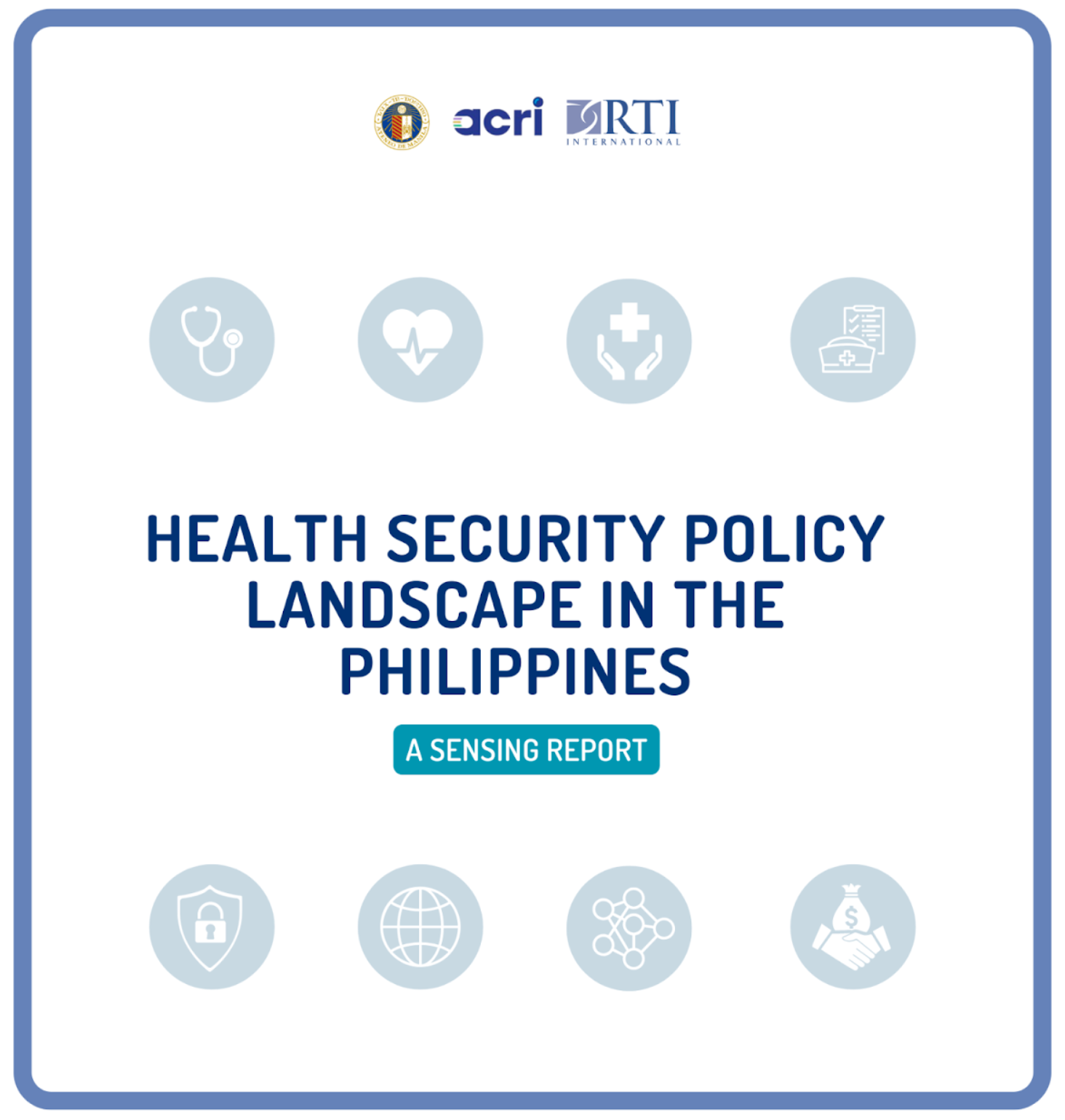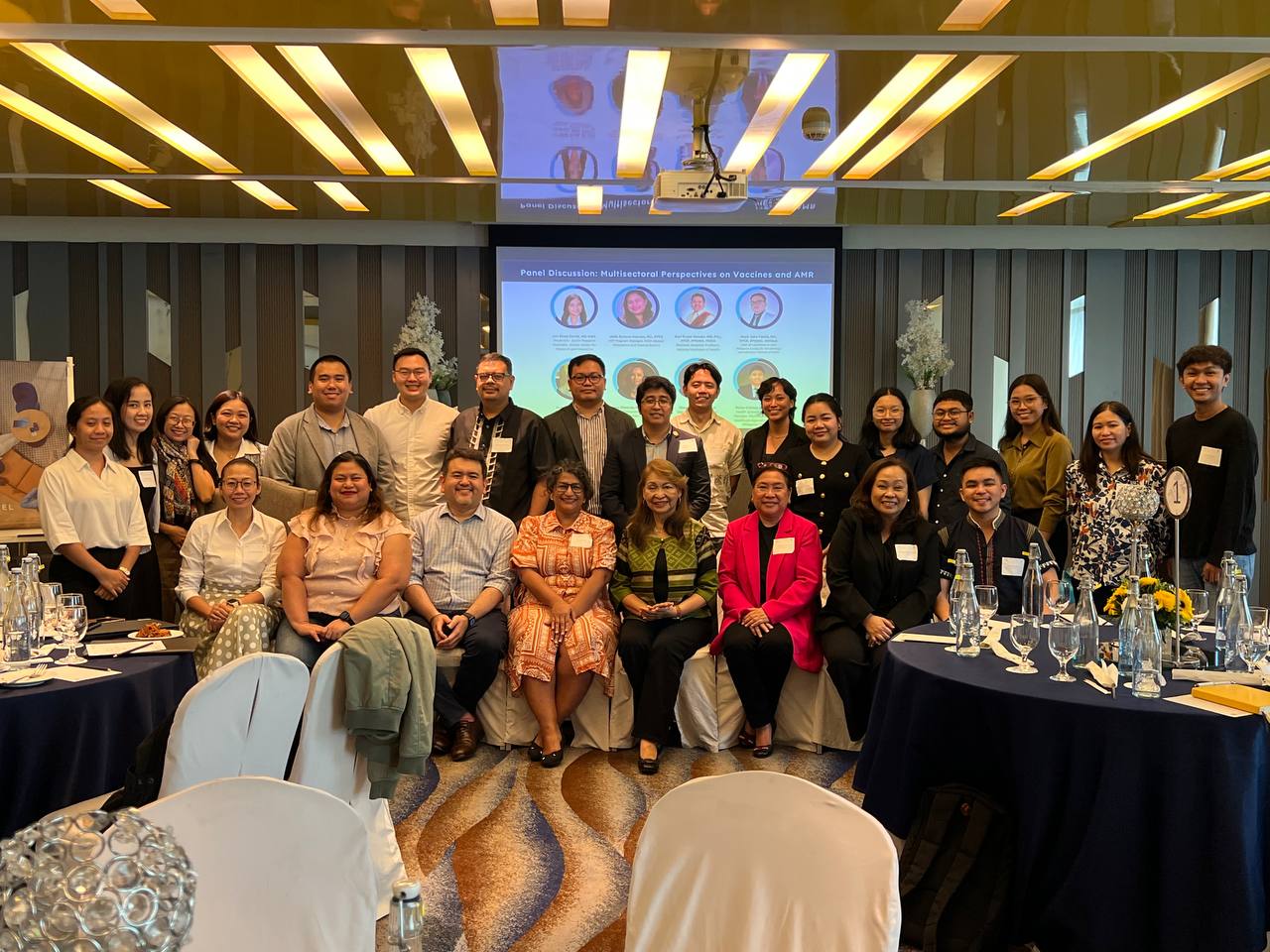
ACRI, RTI looks into the Health Security Policy Landscape in the Philippines
The Philippines faces significant health security challenges due to its vulnerability to natural disasters, frequent disease outbreaks, and the unique demands of its devolved health system. To address these pressing issues, the Ateneo School of Medicine and Public Health Center for Research and Innovation teamed up with RTI International to assess the country’s health security policies. The project set out to map existing policies, identify overlaps and gaps, and propose practical recommendations to strengthen the nation’s ability to respond to health threats. It also sought to align national policies with global standards such as the International Health Regulations (IHR).
The project had three main phases. First, the team created a comprehensive catalog of health security policies, detailing their objectives, scope, responsibilities, and enforcement mechanisms. Next, they conducted interviews with key stakeholders from national agencies particularly from the Department of Health, the Department of Agriculture, the Department of Environment and Natural Resources, and the National Security Council. These interviews served to validate findings and uncover connections, redundancies, and gaps between policies. Finally, they benchmarked the country’s policies against international best practices, incorporating a gender perspective to ensure inclusivity. The findings painted a clear picture: fragmented policies and silos are making it difficult for the Philippines to effectively address threats such as antimicrobial resistance (AMR), zoonotic diseases, and pandemics.
One major issue highlighted by the study is the lack of a unified legal framework to implement IHR-related activities. This gap undermines the country’s ability to meet international standards and coordinate efforts across sectors. The devolved health system adds another layer of complexity, with local government units (LGUs) often lacking the resources and capacity to implement national policies effectively. Other challenges include weak data-sharing mechanisms, insufficient biosafety and biosecurity measures, and limited involvement of the private sector. Risk communication and community engagement, both crucial for effective responses, remain underdeveloped.
To address these issues, the study recommends developing a unified national health security framework that integrates existing policies and fosters collaboration between sectors. A proposed Philippine Health Security Act could provide the legal foundation needed to formalize IHR implementation and clarify roles and responsibilities. Institutionalizing the One Health approach—which connects human, animal, and environmental health—would strengthen coordination and improve responses to complex health challenges. The study also emphasizes the need for better resource allocation, especially in workforce development. It recommends creating positions specifically for health security professionals, offering training programs, and establishing sustainable financing mechanisms such as dedicated health security funds and partnerships with private entities. Building a centralized, multisectoral data-sharing platform is also essential to improve surveillance and enable faster responses to emerging threats. To address regional inequalities, guidelines should be developed to help LGUs adapt national policies to their specific contexts.
Private sector engagement is another key recommendation. By forming formal partnerships and tapping into private sector expertise, the Philippines can significantly strengthen its health security efforts. Community-based initiatives, such as local surveillance systems and public awareness campaigns on AMR and zoonotic diseases, can empower citizens to take an active role in protecting their health. Strengthening international collaboration, particularly within ASEAN, would also help align national strategies with regional goals.
The study suggests several steps for immediate action. Interagency working groups should be convened to streamline existing policies, and outdated laws should be updated to address emerging threats. Pilot projects for data-sharing mechanisms should be launched, and emergency funds should be allocated to address immediate gaps in surveillance. Scholarships and other incentives could help retain skilled health professionals in the public sector. In the medium term, passing the Philippine Health Security Act would solidify the country’s health security structures. Institutionalizing a One Health governance body would improve cross-sectoral coordination. Investments in regional laboratories and isolation facilities would boost emergency preparedness, while expanding community-based programs would enhance resilience at the local level.
For long-term success, the Philippines should focus on developing an integrated health security database to consolidate data from various sources. Establishing a monitoring and evaluation framework would ensure policies are effective and adapt as needed. Funding should be institutionalized through the national budget, with innovative mechanisms like sin taxes or environmental levies explored to supplement resources. Stronger partnerships with international organizations would further align the country’s health security efforts with global best practices.
This partnership between ACRI and RTI emphasizes the importance of addressing fragmentation and fostering collaboration in health security. By improving workforce capacity, strengthening systems, and engaging all sectors, the Philippines can build a resilient and equitable health security framework. These efforts will not only protect public health but also enhance the country’s reputation as a leader in global health security. With the support of government agencies, LGUs, private partners, and the international community, a healthier and more secure future is within reach for all Filipinos.
For more information regarding the study, you may contact us at envihealth.asmph@ateneo.edu
-

The Unseen Link: Vaccines and Antimicrobial Resistance in the Philippine Context
Antimicrobial resistance is already claiming lives, and the global pipeline for new antibiotics is shrinking. In August 2025, experts gathered to explore a critical question: Can vaccines become a frontline weapon against AMR? The science is clear—by preventing infections, vaccines reduce antibiotic use and slow resistance. But translating this into action means confronting data gaps, political barriers, and financing challenges. As one expert noted: "When we vaccinate, we reduce the frequency of these diseases. That means fewer antibiotics—used and misused." With no country in the Global South yet integrating vaccines systematically into AMR strategies, the Philippines has a chance to lead—if stakeholders can move from consensus to action.
-

Advancing vaccine uptake to mitigate antimicrobial resistance (AMR) in low and middle-income countries of South or South-East Asia
This project explores how strengthening vaccine uptake can serve as a key strategy to mitigate antimicrobial resistance (AMR) in the Philippines and across South and South-East Asia. By reducing the burden of vaccine-preventable diseases and the unnecessary use of antibiotics, the study aims to provide actionable recommendations for national and institutional stakeholders to better integrate vaccination initiatives into AMR control efforts, ultimately contributing to stronger, more resilient health systems.
